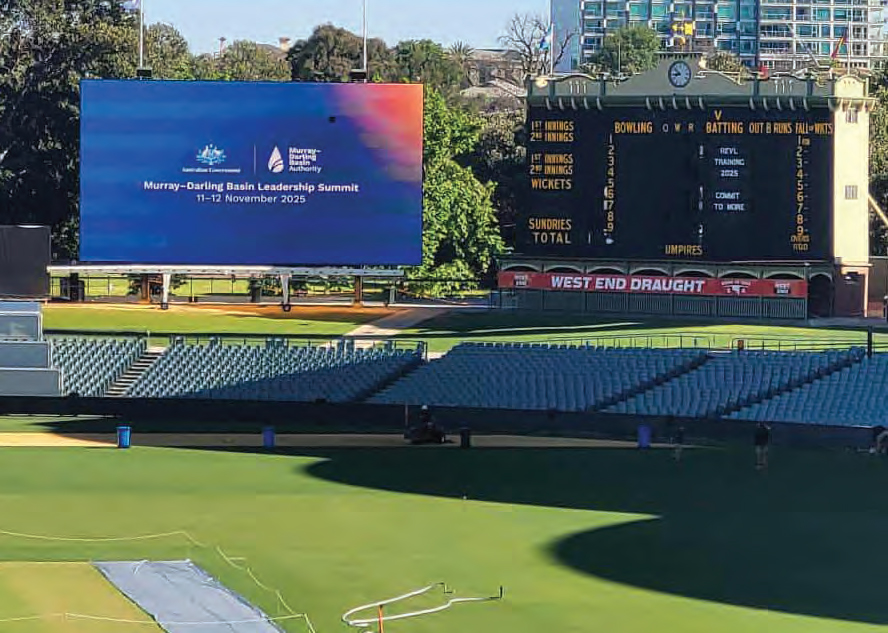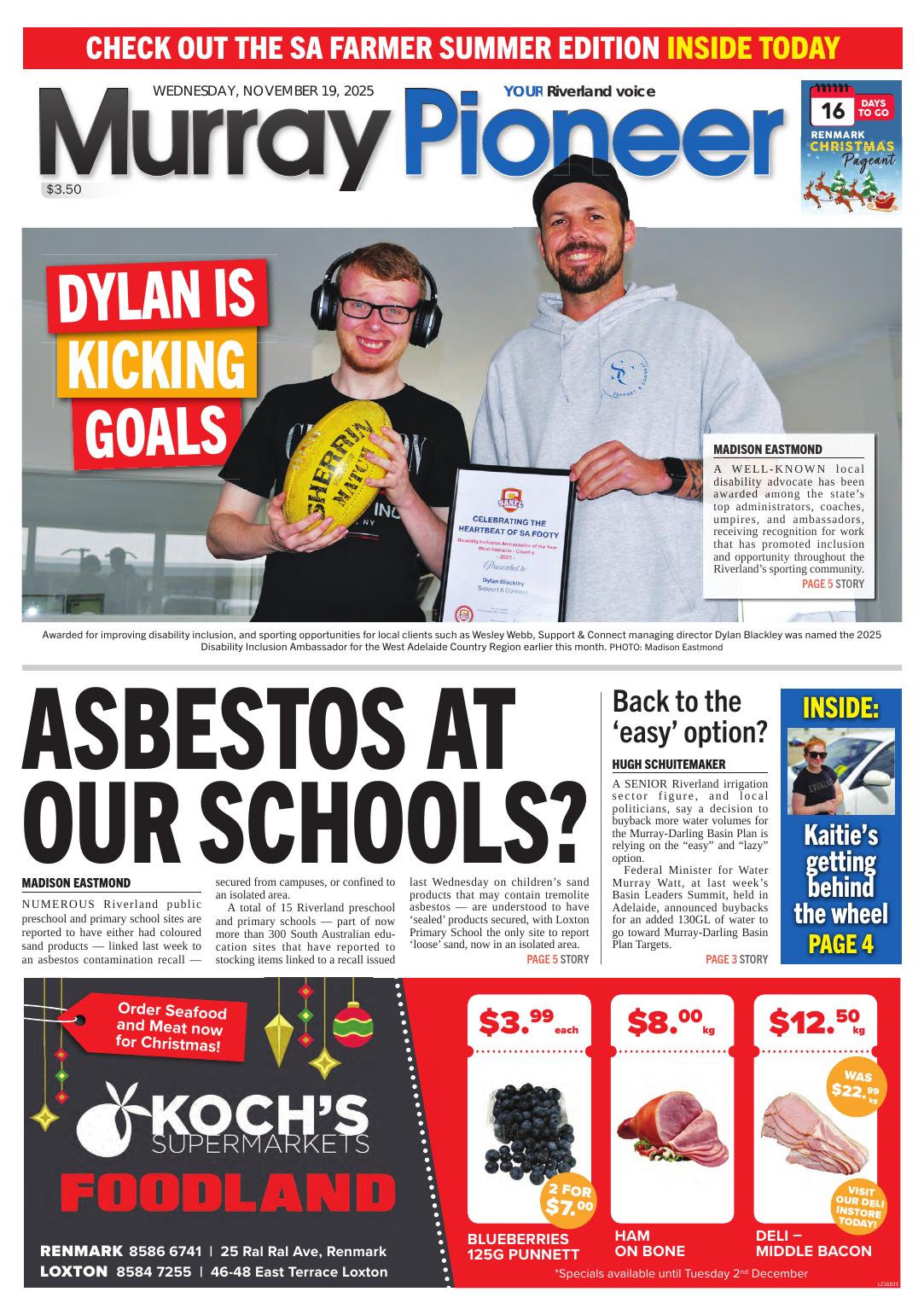Hugh Schuitemaker, Murray Pioneer
A senior Riverland irrigation sector figure, and local politicians, say a decision to buyback more water volumes for the Murray-Darling Basin Plan is relying on the “easy” and “lazy” option.
Federal Minister for Water Murray Watt, at last week’s Basin Leaders Summit, held in Adelaide, announced buybacks for an added 130GL of water to go toward Murray-Darling Basin Plan targets.
Renmark Irrigation Trust CEO Rosalie Auricht, who was present at the summit – within an opinion piece inside today’s [Murray] Pioneer – said the added buybacks will have direct impacts on the Riverland economy.
“This water will come out of intensive irrigation networks, like the Riverland Trusts, and from large investment parcels,” Ms Auricht said
“The oxygen was sucked out of the collective of irrigators in the room.
“Again, the government has jumped to the easy option of non-strategic buybacks. Buybacks were meant to be the last resort after efficiency projects for the 450GL, yet at least 300GL will now be achieved through buybacks.
“Recovering more water from intensive irrigation networks can so easily rip the heart out of the social and economic fabric of those communities.”
Chaffey MP Tim Whetstone said more communication was required surrounding the potential socio-economic impacts of buybacks.
“The Federal Labor Government’s announcement to lift the ceiling on its buyback program is a lazy way of achieving environmental water and overlooks on-farm efficiencies,” Mr Whetstone said.
“Every megalitre of water sold to the Federal Government is lost forever to the economic credentials of the Riverland.
“The government is sucking the lifeblood out of this region and adding to the financial and emotional strain that irrigators are already under.
“When I challenged this, the government pointed to the $20m they gave state Labor to help minimise the impacts of voluntary water purchasing. Where did that $20m go? There’s a lack of transparency on whether any meaningful benefits are being delivered to Riverland irrigators.”
Barker MP Tony Pasin said taking an extra 130GL of water out of the productive pool would “further undermine local jobs, shrink the Riverland’s economy and increase pressure on community assets like the Renmark and Central irrigation trusts”.
“Water buybacks kill communities,” Mr Pasin said.
“Every time Labor pulls water out of production, it’s less food and fibre grown, fewer jobs in our irrigation districts and higher costs right through the supply chain.
“A healthy river and strong regional communities are not mutually exclusive, but Labor’s approach ignores the social and economic consequences entirely. I’ll continue to stand up for the Basin communities I represent and fight for a balanced approach that protects jobs, supports producers and delivers a fair, sustainable future for the Murray-Darling system.”
Mr Pasin said the Federal Government needed to focus on support for the inland wine-grape sector.
“If Labor is intent on taking more water out of production, then they must seize this as an opportunity to put real assistance on the table for wine-grape growers – support that helps rebalance supply, stabilise the sector and give growers some certainty after years of being left to carry the burden alone,” he said.
Mr Watt said fulfilling Murray-Darling Basin Plan environmental targets, while also supporting irrigation in communities like the Riverland, was an ongoing goal.
“What this means is that we now have plans in place to recover more than 400GL of the 450GL target by the end of next year,” Mr Watt said.
“This is a feat that seemed almost impossible when we came to government.
“The challenges the Basin faces are not insurmountable, and the only way we’ll deal with them is through collaboration.
“When it comes to the Basin, the Albanese Government is committed to working collaboratively with you to continue building those solutions.”
This article appeared in Murray Pioneer, 19 November 2025.


